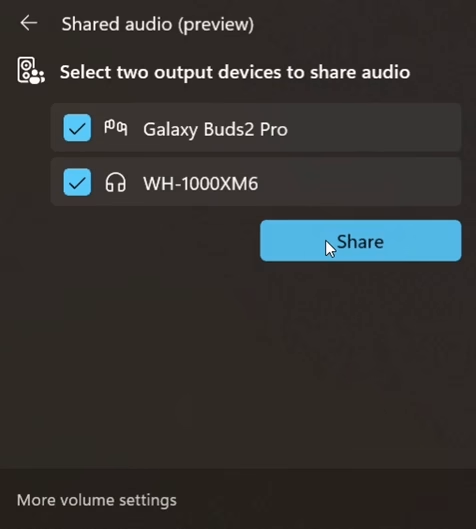Windows 11 24H2 Delivers Full Bluetooth LE Shared Audio, Auracast Integration
Microsoft has officially rolled out comprehensive support for Bluetooth Low Energy (LE) Audio sharing in Windows 11 with the public release of version 24H2 on October 25, 2025. This pivotal update allows users to broadcast audio from their Windows 11 PC to multiple compatible Bluetooth LE headsets simultaneously, a feature leveraging the Auracast standard. The development marks a significant step forward in wireless audio capabilities for the Windows ecosystem.
The initial rollout was swiftly followed by a patch (KB5044284) on October 29, which aimed to resolve early latency issues that some users reported in shared audio streams. Currently, Microsoft continues to refine the experience, with the Windows Insider Program's Dev Channel (build 26120.2210, released October 31) receiving minor stability fixes. Insiders have noted improved compatibility with popular LE Audio-enabled headsets, including models like the Sony WH-1000XM6 and Bose QuietComfort Ultra.
The Power of LE Audio and Auracast
At its core, Bluetooth LE Audio sharing, particularly through Auracast, represents a major leap over classic Bluetooth. It's not just about connecting multiple devices; it's about doing so efficiently. The technology utilizes the Low Complexity Communication Codec (LC3), allowing for high-quality audio streams with significantly reduced latency—under 20ms for synchronized playback across devices. What's more, it’s considerably more power-efficient, potentially extending headset battery life by 30-50% compared to traditional Bluetooth connections.
Windows 11's implementation supports sharing audio with up to eight headsets concurrently, making it ideal for group listening scenarios, be it watching a movie with family or sharing music with friends. The range can extend up to 100 meters in open spaces, albeit more typically 10-20 meters indoors. You know, walls and stuff. This system-wide integration ensures compatibility with virtually any audio application, from Spotify to YouTube, unlike some competitor platforms that might require app-specific support. For users, a Bluetooth 5.3 or newer adapter and LE Audio-compatible headsets are essential to unlock these new functionalities.
Reception and Real-World Impact
The community response has been largely positive, though not without caveats. Many users have lauded the feature for its convenience in shared environments, with one Reddit user commenting, "Finally, no more fighting over headphones—shared audio works flawlessly on my Surface." Anecdotal evidence suggests high satisfaction for family entertainment and collaborative productivity. However, some criticisms have emerged, primarily concerning hardware compatibility for older headsets and occasional reports of increased battery drain during prolonged shared audio sessions. It's a newer tech, so, yeah, some kinks might still be getting worked out.
From an industry perspective, analysts see this as a strategic move for Microsoft. Gartner projects a potential 5-7% boost in Windows PC sales within the consumer audio market, especially given the rising demand for flexible wireless collaboration tools. The Bluetooth SIG itself has praised Microsoft's implementation for advancing wireless audio standards. While some tech outlets like The Verge have given it an 8/10, noting "latency spikes in crowded Wi-Fi environments limit its potential," the overall sentiment points to a valuable addition that differentiates Windows 11 from other operating systems that have lagged in cross-platform LE Audio sharing. This feature also includes public audio broadcasting via Auracast, which could transform shared audio experiences in public spaces down the line.
